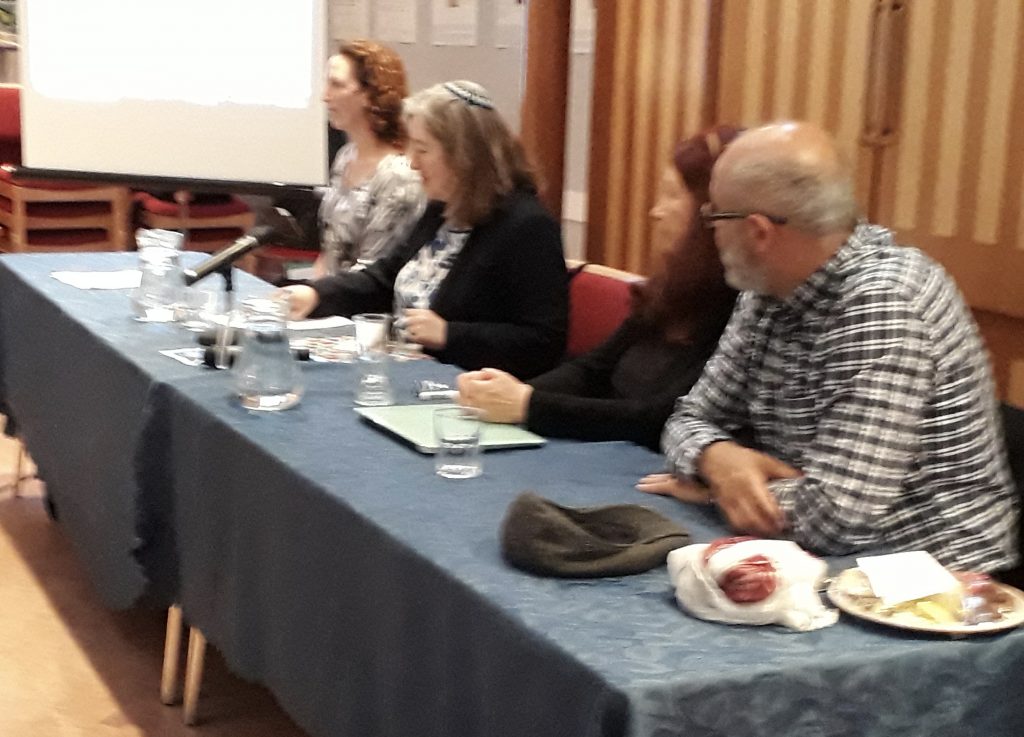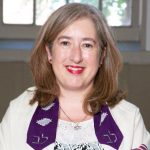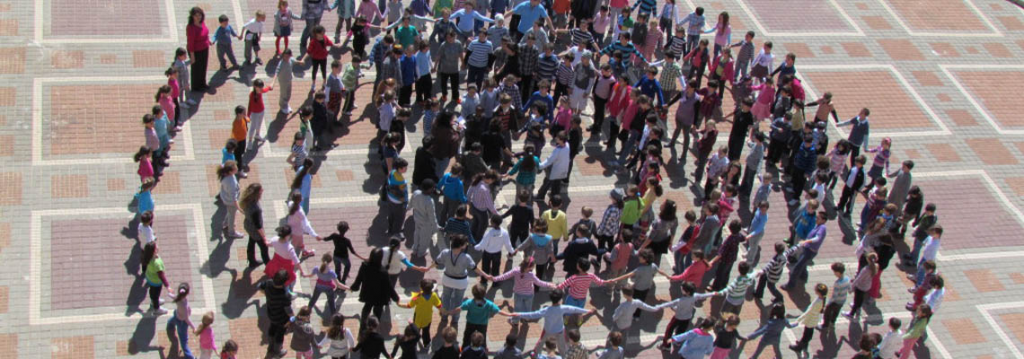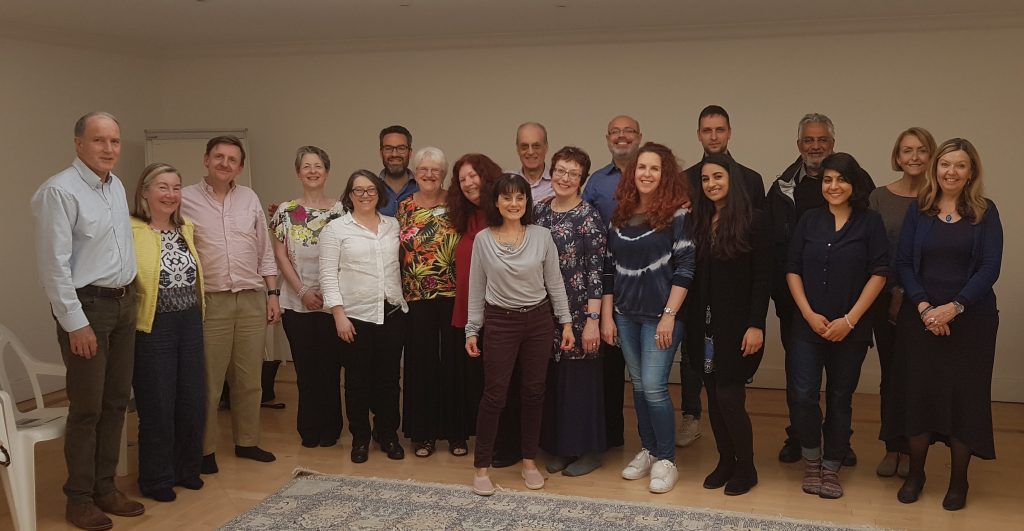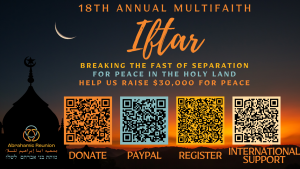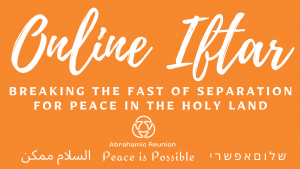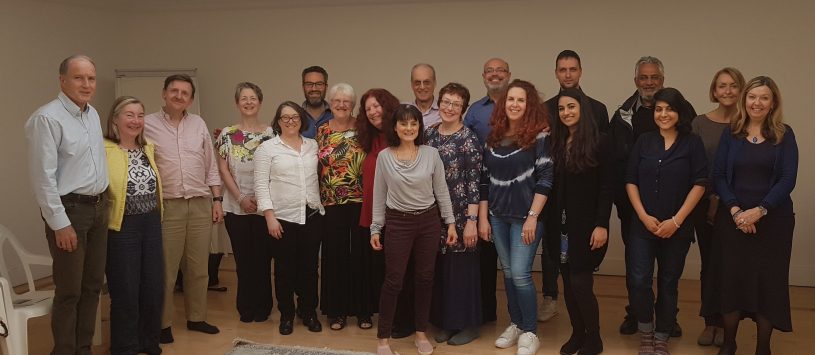
The Abrahamic Reunion UK recently received its verification as a Charitable Trust. AR UK’s directors, Amanda and Michael Vakil Kenton, organized a series of peacebuilding programs running from May 7th-25th, to address tensions in the UK. Rev. Dr. Anna Less (International Executive Director) and Sheikh Ghassan Manasra (International Director and Ambassador) are joining them on this tour. For more information about AR UK and its programs, or to make a donation, click here or contact england@abrahamicreunion.org. Dr. Anna Less is also writing blogs about this journey.
Panel Discussion at Kol Chai Synagogue
It is Thursday night and Ghassan and I travel to Kol Chai Synagogue in the London borough of Pinner. Kol Chai Synagogue is the spiritual home for about 300 Reform Jewish families.
Reform Judaism is a major Jewish denomination that recognizes the evolving nature of the Judaism, and emphasizes Judaism’s ethical aspects rather than it’s ceremonial ones. Considered to be a liberal strand of Judaism, Reform Judaism was formulated by Rabbi Abraham Geiger and his associates in 19th-century Germany.
Kol Chai’s Rabbi Naomi Goldman is our host. During our last Abrahamic Reunion tour of England in November 2017, Rabbi Naomi Goldman and I, together with AR Youth Leader Zaynab Manasra, and AR UK Founder and Director, Amanda Kenton, were the guest discussion leaders on a panel at an all women’s event at the Baitan Amul Mosque, entitled ‘Women of Faith Standing Together’.
This year Rabbi Naomi Goldman has invited Ghassan and I to her synagogue to be guest presenters at a panel discussion event entitled ‘Israel is 70: What Challenges Are There for the Next 70 Years?’ Other guest speakers on our panel are Anna Roiser, the Outreach and Engagement Coordinator for the New Israel Fund, and Rabbi Oded Mazor of the Leo Baeck Haifa Educational Center.
Each of the speakers on our panel represents an organization dedicated to bringing together Israeli Jewish and Arab populations to participate in innovative and forward thinking programs that represent a vision for an equal, tolerant and inclusive future for Israel.
As an Israeli Arab Ghassan’s very presence on the panel combined with his intelligence and his message of love, was a hopeful symbol for our mostly Jewish audience.
After the presentation many eminent participants came forward to meet him and speak with him privately about their dreams for a liberal and diverse Israel where both Arab and Jewish Israeli citizens can feel safe and respected.
Our Day at Spring Hill Prison with Rabbi Gluck and Ghassan

Ghassan and I meet Rabbi Gluck OBE and Abrahamic Reunion UK directors Michael and Amanda Kenton at Marylebone Train station to take a train to Spring Hill Prison.
As the train takes us on a journey through the countryside, we chat and Ghassan rests. He has been fasting for Ramadan and we are within days of the Summer Solstice. It is nearly the longest day of the year and here in England that means the Ramadan fast lasts from nearly 2:00 in the morning until 9:10 at night. Ghassan has not had sip of water or a bite to eat, and it is nearly 5 in the afternoon. We are all acutely aware that he will be leading a workshop for the next several hours and many of the participants will also be fasting.
Michael and Amanda and Rabbi Gluck, on the train, discuss the rigors of fasting for Yom Kipper and the health benefits of fasting in general. Rabbi Gluck also explains the esoteric teachings of why Jewish people customarily eat fish on Shabbat.
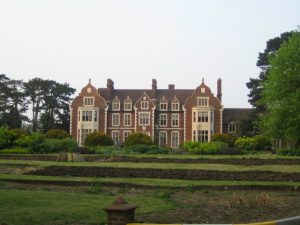 We arrive at the prison and I ask Ghassan and Rabbi Gluck to stand together for a photo. I take the shot and immediately two different officers confront me and firmly tell me to delete it. No photos are allowed on the prison grounds.
We arrive at the prison and I ask Ghassan and Rabbi Gluck to stand together for a photo. I take the shot and immediately two different officers confront me and firmly tell me to delete it. No photos are allowed on the prison grounds.
We sign in, and go through the security checks and put our cell phones, back packs and purses into lockers. Announcements are made telling the prisoners to line up at their cell doorways for role call.
As Dorothy famously said “Toto, I’ve got a feeling we’re not in Kansas anymore.”
We are escorted to the room where we will be conducting our workshop and the prisoners begin to arrive. At first there are only two, Ali, and Allen (both names have been changed to protect their identities). As they sit down Allen says,
I don’t know how many people will come today. I think most of the Christians won’t come. You need a Christian presenter as well.
We tell him it is something we are working on. We explain that we are still developing our team in England and have been looking for a Christian faith leader to work with us.
Ali also gives us feedback and tells us we have to be more straightforward and talk about things like what is going on in Gaza, and “really talk about it.” He explains that the Muslim prisoners are very upset and need to feel heard.
We nervously wait for the prisoners to arrive and wonder who will come.
The room begins to fill. When the men enter they glance around to see who else has come. They seem wary and tense, and I realize there are strong social tensions and cliques among the inmates, and the feedback we have received is mostly rooted in that dynamic, but still it is our work to deal with it.
In spite of being prepared by Allen to lower our expectations, the room fills, and there are even a few new faces.
 As the men arrive Rabbi Gluck shakes their hands and pats them on the shoulder and jokes with them as he introduces himself. He is a master at breaking through their armor. Most of the people in the room are Muslims and I feel sure that everyone who has come has never shaken the hand of a strictly Orthodox Rabbi before. As they take their seats they study his long beard, black hat and tzitzit with undisclosed curiosity and anticipation. It is clear that something new and unexpected is about to happen and they are positioning themselves for it.
As the men arrive Rabbi Gluck shakes their hands and pats them on the shoulder and jokes with them as he introduces himself. He is a master at breaking through their armor. Most of the people in the room are Muslims and I feel sure that everyone who has come has never shaken the hand of a strictly Orthodox Rabbi before. As they take their seats they study his long beard, black hat and tzitzit with undisclosed curiosity and anticipation. It is clear that something new and unexpected is about to happen and they are positioning themselves for it.
We sit in a circle and Rabbi Gluck begins talking proactively about the value of being able to know “the other”. He tells a story about how during Apartheid in South Africa when white people were interviewed they expressed great prejudice and fear about black people except for the ones they knew. The white people saw the black people they knew as “wonderful people.” But they were unable to see that every white person knew “wonderful” black people. He explained that in the act of knowing “the other” we can overcome our misconceptions about one another and realize that we are basically very much alike even though we may appear different.
Ghassan and Rabbi Gluck invite people to “not hold back” and tell them to ask “hard questions” and “really say what is in their hearts”.
So we begin. Ghassan tosses me an imaginary ball and tells everyone in the circle why he appreciates me. Then he tells me to throw my ball to someone in the circle.
I throw it to Allen and tell the group I have thrown the ball to Allen because last week Allen was my partner when Ghassan asked us what our dreams were, and Allen told me that his dream was to “be able to help other people” and how that helped me to remember what is truly important in life.
Then Allen throws the ball to the next person. As the exercise continues we hear how each person in the room is truly valued by others. By the end of the game, tensions have melted and people are beaming at one another in appreciation.
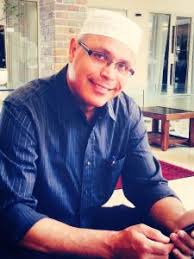 Next, Ghassan invites everyone to introduce themselves and share something important about themselves with the group. As we go around the circle we learn surprising and unexpected things.
Next, Ghassan invites everyone to introduce themselves and share something important about themselves with the group. As we go around the circle we learn surprising and unexpected things.
The men speak about their dreams and aspirations. Nearly all of them had been working on advanced college degrees before prison, and many of them have wives and children.
They speak about their past careers and they talk about their families.
Ghassan asks if there are any volunteers to sit in a special story telling chair and tell the group a story. He explains it can be a true story, or a made up story. And says the story can be about yourself, or about a made up character, but at the end of the story the story teller needs to invite one or two people to analyze their story.
Then Ghassan demonstrates by telling a story about himself growing up as a child in Nazareth, and how he grew up hearing the stories of the prophets. And how the stories of the prophets became the games that he and his friends played in the hills there. He told how when he dreamed at night as a child he often dreamed of flying, and how when he daydreamed he dreamed of flying all over the world.
He invites Rabbi Gluck to analyze his story and Rabbi Gluck describes Ghassan as a dreamer who wanted to use games and religion help others fly above their problems.
 The next man in the story telling chair tells us the story of having had an extremely abusive father and how as a child he had vowed to become a good father and husband, but although he had built a successful business and was on his way to fulfilling that dream he fell into using drugs and alcohol and lost everything. He describes how in this lost and hopeless condition one of his friends had tried to take him to a popular club to join a party, but after waiting for over an hour in the rain he realized he wanted to go some place quiet instead. And it was when he walked into the quiet pub he immediately saw the woman who would later become his wife, and the mother of his five daughters. He turns and asks me to analyze his story, and I offer:
The next man in the story telling chair tells us the story of having had an extremely abusive father and how as a child he had vowed to become a good father and husband, but although he had built a successful business and was on his way to fulfilling that dream he fell into using drugs and alcohol and lost everything. He describes how in this lost and hopeless condition one of his friends had tried to take him to a popular club to join a party, but after waiting for over an hour in the rain he realized he wanted to go some place quiet instead. And it was when he walked into the quiet pub he immediately saw the woman who would later become his wife, and the mother of his five daughters. He turns and asks me to analyze his story, and I offer:
“God talks in a quiet voice, and even when we feel completely lost, God is listening and knows what is in our hearts, and will try to help us find it.”
Allen tells the story of nearly losing his life after a car accident and how the person who ultimately saved his life was someone he had formerly had great difficulty with. Allen asks Amanda to analyze his story and Amanda tells every one about a practice she does every day. Amanda explains that every day she thanks God for every thing that happens to her no matter how “bad” or “hard” it was, because she has learned that even the “bad” and “hard” things that have happened to her always turn out to be for her higher good, so this has taught her to be grateful for even the hard things she goes through in life. Everyone in the room ponders Amanda’s wisdom and I think more than a few of us vow to begin doing the same practice.
same practice.
It is time to end and no one wants to leave. It is only the recognition that the Ramadan fast is about to end that causes everyone to disperse. But as they leave, participants come to hug us and tell us how much they have loved the workshop. They ask if we will come again next week. We explain that we will be back in December and they ask us to stay in touch until then.
As we ride home together, Amanda passes out kosher sandwiches and we reflect on our experience at Spring Hill. It feels like we have become best friends with one another, and with the men who came to our workshop. We already miss them.
Meeting with Rabbi Gluck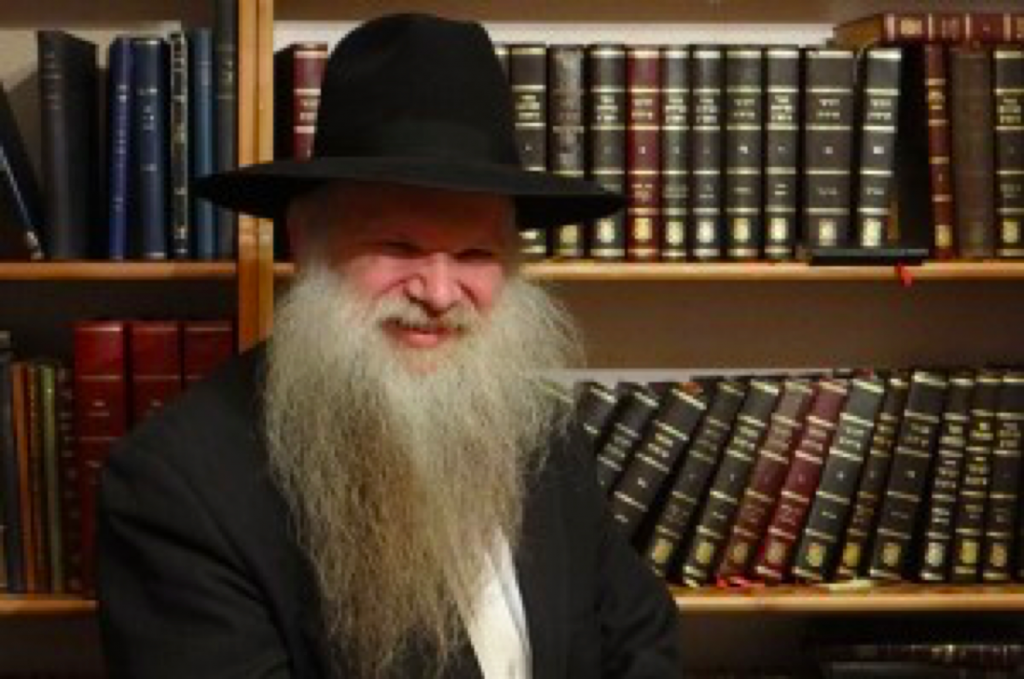
Today Ghassan and I and Michael Kenton (AR director UK) went to visit Rabbi Gluck OBE, founder and chair of the Muslim-Jewish Forum.
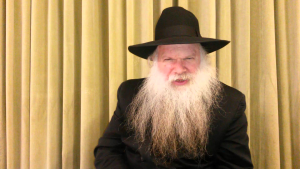 Rabbi Gluck lives in a Strictly-Orthodox Jewish neighborhood in North London. Interestingly the residents there are either Strictly-Orthodox Jews or Strictly-Orthodox Muslim. It is common to see men with long beards, and kufi, in short galibeas, and women in niqabs and burqas pushing strollers on the same side walk with men in large black hats, long black coats and payot, and women in turbans and berets. None of them make eye contact with us as we walk by, and some young men with payot cover their eyes when they walk past me.
Rabbi Gluck lives in a Strictly-Orthodox Jewish neighborhood in North London. Interestingly the residents there are either Strictly-Orthodox Jews or Strictly-Orthodox Muslim. It is common to see men with long beards, and kufi, in short galibeas, and women in niqabs and burqas pushing strollers on the same side walk with men in large black hats, long black coats and payot, and women in turbans and berets. None of them make eye contact with us as we walk by, and some young men with payot cover their eyes when they walk past me.
We arrive at Rabbi Gluck’s home and he invites us into his dining room. Books line the walls and are stacked on the table. Ghassan and Rabbi Gluck begin to talk and their conversation swings from esoteric scholarly texts in prehistory to complex political analysis involving rulers in the Holy Land, Andalusia, the Crusades, the Ottoman Empire, and the 19th, 20th and 21st centuries. They compare Jewish and Islamic texts in Hebrew, Aramaic, Persian, Arabic and English, all of which they speak fluently, and they speak about the different political leaders they have worked with negotiating complex, delicate and often secret deals for. I feel like I need a computer to track it all.
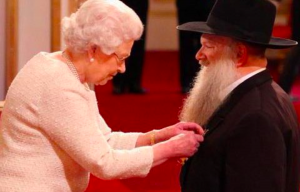 After talking with, and listening to Ghassan for an hour and half, we get a call from Amanda who tells us Rabbi Zeller can’t make it to our program at the prison tomorrow. Michael explains to Rabbi Gluck that tomorrow we will be going back to Spring Hill Prison to do a workshop. Rabbi Gluck says: “Ah… Spring Hill there are some pretty radical guys there.” Then he gets out his diary, and after studying it, he spontaneously offers to cancel everything and join us. We are delighted.
After talking with, and listening to Ghassan for an hour and half, we get a call from Amanda who tells us Rabbi Zeller can’t make it to our program at the prison tomorrow. Michael explains to Rabbi Gluck that tomorrow we will be going back to Spring Hill Prison to do a workshop. Rabbi Gluck says: “Ah… Spring Hill there are some pretty radical guys there.” Then he gets out his diary, and after studying it, he spontaneously offers to cancel everything and join us. We are delighted.
So tomorrow we are off to the prison again with Rabbi Gluck. I will keep you posted.
England Iftar with A’laa and His Family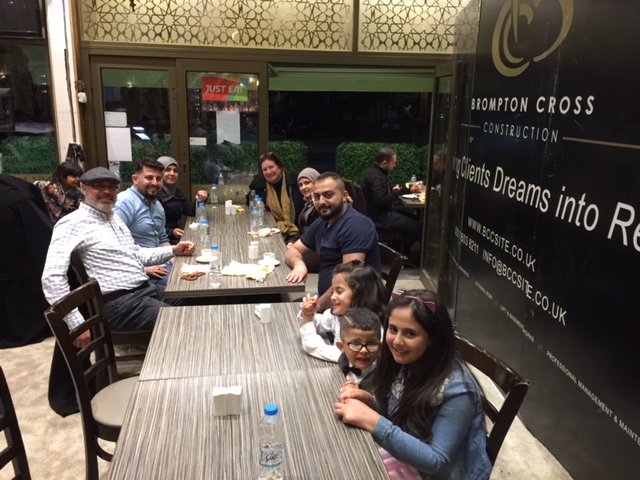
May 20, 2018
Tonight Ghassan and I have invited A’laa and his family to celebrate Iftar with us.
For those of you who have read my blogs in the past you will know that two years ago when Ghassan, and I first came to England for an Abrahamic Reunion tour, we gave a presentation at the New North London Synagogue and afterwards Rabbi Wittenberg (who is the head Rabbi there) invited us to his home for an interfaith Iftar celebration he was offering for members of his congregation and the Syrian Refugee community that had newly settled in their neighborhood in North London.
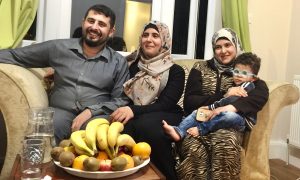 Rabbi Wittenberg was anxious for Ghassan and I to attend so Ghassan could help translate for the Syrian refugees. At that Iftar Ghassan and I made a connection with a young Syrian father named A’laa, who expressed a desire to start an Abrahamic Reunion text study group. A’laa saw Abrahamic Reunion text study sessions as a perfect way to help his family practice their English, learn about the new culture they had found themselves thrown into, and also help his new English, Jewish neighbors, and his multi faith class mates at college get to know one another more deeply.
Rabbi Wittenberg was anxious for Ghassan and I to attend so Ghassan could help translate for the Syrian refugees. At that Iftar Ghassan and I made a connection with a young Syrian father named A’laa, who expressed a desire to start an Abrahamic Reunion text study group. A’laa saw Abrahamic Reunion text study sessions as a perfect way to help his family practice their English, learn about the new culture they had found themselves thrown into, and also help his new English, Jewish neighbors, and his multi faith class mates at college get to know one another more deeply.
However, before A’laa could start his text study group, tragedy struck, and he contracted intestinal cancer.
Ghassan and I continued to visit A’laa and his family. During our visits A’laa’s wife explained how grateful she was for the opportunity to practice her English with us. It is a skill she desperately needs to develop so she can support her young family in this new land.
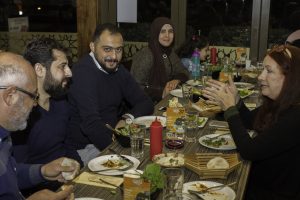 On our last visit Ghassan and I introduced A’laa and his family to Judith, an elderly Jewish woman we had met at a dinner party for the Abrahamic Reunion here in London. Judith had grown up in Jerusalem prior to 1948, when Israel became a state. Although Judith was Jewish, like her other Jewish neighbors in Jerusalem at that time, she grew up speaking Arabic and most of her siblings had Arabic names. As a child she played freely with her Muslim and Christian, Palestinian neighbors in the streets of Jerusalem. But as a young woman Judith married and moved to England. She became involved with her synagogue here, and her Arabic faded. She also became a psychotherapist, specializing in healing childhood trauma, and she began making trips to the Holy Land to help families who had lost family members to the conflict there. Judith had recently retired from this work, and was looking for something. When I met Judith and told her about the work we were doing for the Abrahamic Reunion in the Holy Land, she wistfully expressed that she wished she could remember how to speak Arabic.
On our last visit Ghassan and I introduced A’laa and his family to Judith, an elderly Jewish woman we had met at a dinner party for the Abrahamic Reunion here in London. Judith had grown up in Jerusalem prior to 1948, when Israel became a state. Although Judith was Jewish, like her other Jewish neighbors in Jerusalem at that time, she grew up speaking Arabic and most of her siblings had Arabic names. As a child she played freely with her Muslim and Christian, Palestinian neighbors in the streets of Jerusalem. But as a young woman Judith married and moved to England. She became involved with her synagogue here, and her Arabic faded. She also became a psychotherapist, specializing in healing childhood trauma, and she began making trips to the Holy Land to help families who had lost family members to the conflict there. Judith had recently retired from this work, and was looking for something. When I met Judith and told her about the work we were doing for the Abrahamic Reunion in the Holy Land, she wistfully expressed that she wished she could remember how to speak Arabic.
It seemed like a perfect idea to introduce her to A’laa and his family, so during our last visit to London in November 2017, Ghassan and I brought Judith to A’laa’s home and introduced her to him and his wife, Tahgrid and their daughter, and to A’laa’s brother Bahaa and his wife Raada (who also happens to be Tahgrid’s sister) and their two children. Since then Judith has visited A’laa’s family almost weekly, and on each visit they spend an hour speaking English, and an hour speaking Arabic.
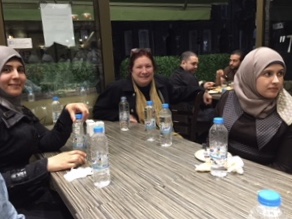 I am delighted when we meet A’laa’s family at the restaurant and the women are able to converse with me in English as a result. I tell them that I had tried to call Judith to invite her as well, and I am shocked when they tell me that Judith’s own daughter recently died unexpectedly of cancer only 3 weeks after being diagnosed. They say they have been helping her, but that she often doesn’t see her phone messages, and they will let her know that I had tried to invite her.
I am delighted when we meet A’laa’s family at the restaurant and the women are able to converse with me in English as a result. I tell them that I had tried to call Judith to invite her as well, and I am shocked when they tell me that Judith’s own daughter recently died unexpectedly of cancer only 3 weeks after being diagnosed. They say they have been helping her, but that she often doesn’t see her phone messages, and they will let her know that I had tried to invite her.
We learn that A’laa’s cancer treatments have been successful, and as of a few weeks ago he has been able to discontinue chemotherapy. He will go back for a check up in six months to be evaluated to see if he will need any follow up treatment.
In the meantime A’laa is going to college, but he has decided to switch majors, and study media so he can become a film editor. He says now that he has had cancer, he will no longer to be able to stand on his feet all day as a pharmacist as he did in Syria and Jordon. But he assures us that he loves his new career choice, and is doing well in school.
The children are also doing well in school and speak English fluently. If one did not know their background one would think they were born here and grew up speaking English as their mother tongue. Bahaa has been able to get a part time job as a bookkeeper, and he continues to go to school to earn a Master’s degree in English accounting so he can return to his former profession in his new country. Tagrid and Radaa are excellent cooks and get some catering work from people in their new community. They are settling in, and they see the possibility of being able to work full time in a few years.
They invite us to their home for an Iftar on Friday night and say they will also invite Judith. The adults say that as they adjust to life in England they have been able to remain in touch with their families who still live in Damascus, which is still relatively safe. Although they have been unable to start a text study program for the Abrahamic Reunion, we feel that we have been able to help them and Judith form a cross faith support system that has served them both. And we hold this family dear to our hearts.
To read past blogs about A’laa and his family, click here
Shavuot at Rabbi Wittenberg’s
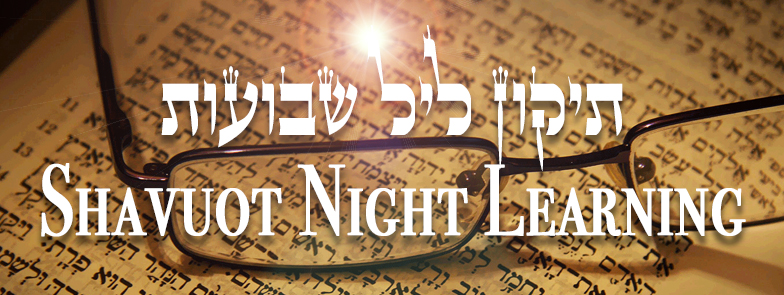
At 12:30 AM Ghassan and I arrive at Rabbi Jonathon Wittenberg’s home to participate in an all night text study group commemorating the Jewish holiday of Shavuot.

It is a holiday that has evolved and changed a lot over the centuries and for this reason it is a holiday that is celebrated in different ways by Jewish people in different parts of the world. In ancient times Shavuot was a mid-summer harvest holiday celebrated locally by different tribes on communal threshing grounds where wheat was being separated from chaff.
Then sometime around the seventh or eighth century BCE, the Jerusalem monarchy and priesthood consolidated their power, and brought these separate local tribes together under their rule. As part of trying to consolidate their power they co-opted these local celebrations and replaced them with unified rites that could only be performed at the Temple in Jerusalem. This not only brought together these separate tribes and gave them a sense of people-hood, it also was a way of enriching the temple.
The word Shavuot, which means “weeks”, comes 7 weeks and 1 day, (50 days) after the 2nd day of Passover. Bread is an important part of both Passover and Shavuot. For Passover, unleavened bread (matzo) made from the first crop of barley is the main food, and for Shavuot, leavened bread made out of the first crop of wheat is the major food. On Shavuot, traditionally, farmers would present two loaves of leavened bread to the temple priests while chanting Hebrew texts about loyalty to God, and the common history of the tribes. The priests then “Waved” the loaves of bread “Before The Lord” together with wine, and a complicated array of animal sacrifices, (seven lambs, two rams and two goats) much like those sacrificed on Passover.
 After the destruction of the Jewish Temple in Jerusalem by the Romans in 70 CE, Shavuot had to be adapted to the new realities that faced the Jewish People. With no temple to make a pilgrimage to, and with no place make sacrifices in, Shavuot had to be reshaped under the guidance of the rabbis. From the 2nd century on, Shavuot began to be associated with the appearance of God, and the presentation of the Torah to Moses on Mount Sinai. For various reasons as Shavuot continued to evolve throughout the centuries, it also came to be associated with eating dairy products.
After the destruction of the Jewish Temple in Jerusalem by the Romans in 70 CE, Shavuot had to be adapted to the new realities that faced the Jewish People. With no temple to make a pilgrimage to, and with no place make sacrifices in, Shavuot had to be reshaped under the guidance of the rabbis. From the 2nd century on, Shavuot began to be associated with the appearance of God, and the presentation of the Torah to Moses on Mount Sinai. For various reasons as Shavuot continued to evolve throughout the centuries, it also came to be associated with eating dairy products.
The custom of staying up all night to study texts on Shavuot, began in Thessaloniki Greece in 1533 when Joseph Caro, the famous authority on Jewish Religious law (Halaka), and his friend the Kabbalist, and poet, Shlomo Halevi Alkabetz, and their colleagues stayed up all night on Shavuot to study religious texts.
Many scholars believe this innovation was due to the influence of Islamic and Sufi practitioners who stayed up all night studying the Quran on the Night of Power (Lailat al Qadr) during the festival of Ramadan, to commemorate the giving of the Quran to Mohammed. The practice of staying up all night studying Torah on Shavuot came to be known as Tikkun Leil Shavuot. (The concept of tikkun means repairing the world, and refers to performing acts that repair the world.)
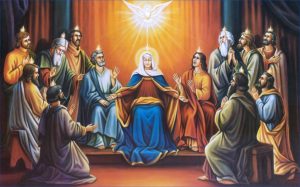 There is also an interesting connection between the Jewish celebration of Shavuot and the Christian celebration of Pentecost. The word “Pentecost comes from the Greek word “pentekostos”, which means 50. For Christians Pentecost comes 50 days after Easter, and it commemorates the descent of the Holy Spirit upon the followers of Jesus while they were gathered in Jerusalem for the celebration of Shavuot. Just as Shavuot was evolving to commemorate God giving Moses the Torah, which imparted divine knowledge to his followers, Pentecost memorializes the imparting of divine knowledge to the followers of Jesus.
There is also an interesting connection between the Jewish celebration of Shavuot and the Christian celebration of Pentecost. The word “Pentecost comes from the Greek word “pentekostos”, which means 50. For Christians Pentecost comes 50 days after Easter, and it commemorates the descent of the Holy Spirit upon the followers of Jesus while they were gathered in Jerusalem for the celebration of Shavuot. Just as Shavuot was evolving to commemorate God giving Moses the Torah, which imparted divine knowledge to his followers, Pentecost memorializes the imparting of divine knowledge to the followers of Jesus.
It is in this spirit that Rabbi Wittenberg has invited Ghassan and I to his home to join about 30 of his students and friends to study texts together for Shavuot. Ghassan will be the guest scholar and together with Rabbi Wittenberg will be leading the Tikkun Leil Shavuot.
When we arrive a large buffet with many dairy dishes, bread, pastries, fruits, nuts and sweets is laid out in the kitchen. After we have eaten, we assemble around a series of tables that extends through the dining room, parlor and living room. Texts are distributed and we begin to analyze their contents.
The first set of texts has to do with opening the eyes and seeing. These texts acknowledge the stages that the act of seeing goes through, and just as the texts describe, each of us around the table have the experience of first reading the text and thinking we understand it, then as we read it more carefully, the act of seeing these texts leads us to a deeper meaning and experience, and as we read the texts again and discuss them further another veil is lifted and we experience an even deeper meaning.

Rabbi Wittenberg describes how as a young student he was exposed to the story of King Lear, and how he became obsessed by Shakespeare’s description of Lear’s descent into madness after he was tricked by two of his daughters into giving them his kingdom. Jonathan admitted that even today, more than forty-five years later, he still reflects on these passages, which he has committed to memory, and how he continues to experience insight into their meaning.
Ghassan describes how the Sufis ascribe 3 stages to the act of seeing and taking in information. The first stage is the rational stage, and in this stage he says we absorb information with our rational mind. Then there is a second stage, and in the second stage we absorb information with our feelings. Then Ghassan describes the third stage, and he says in this third stage we absorb the experience as a taste.
 Ghassan goes on to describe the Isra and Mi’raj of the prophet Mohammed and says in the first phase of Mohammed’s night journey he encounters the angel Jibreel (Gabriel) in Mecca, and Jibreel presents Mohammed with the winged steed, Buraq, and invites him on the night journey. In this phase Mohammed experiences the encounter with Jibreel and Buraq with his rational mind, but as his journey progresses, and Mohammed flies on Buraq’s back to Jerusalem, and he begins his ascent into heaven, he enters into the feeling phase of his journey.
Ghassan goes on to describe the Isra and Mi’raj of the prophet Mohammed and says in the first phase of Mohammed’s night journey he encounters the angel Jibreel (Gabriel) in Mecca, and Jibreel presents Mohammed with the winged steed, Buraq, and invites him on the night journey. In this phase Mohammed experiences the encounter with Jibreel and Buraq with his rational mind, but as his journey progresses, and Mohammed flies on Buraq’s back to Jerusalem, and he begins his ascent into heaven, he enters into the feeling phase of his journey.
Then in the final phase of his journey after meeting the prophets in each level of heaven, Mohammed leaves Jibreel behind, and encounters God alone. It is in this encounter with God that Mohammed experiences the third stage of absorbing his experience, and Mohammed can only experience this encounter with God, as a taste.
On one of our breaks several participants approach Ghassan and I and express awe and joy at the discovery that Ghassan’s Sufi teachings can offer such deep and insightful interpretations of the Jewish teachings. They suggest that Ghassan and Rabbi Wittenberg offer a seminar together for their congregation in December when we return to England for our next Abrahamic Reunion tour.
Our text study session resumes and continues throughout the night. Each time someone shares a new insight offering a deeper interpretation of the teachings, the entire group experiences an inner exaltation.
Finally as the sun is rising, and as I call an Uber so we can go home and sleep, Rabbi Wittenberg hugs Ghassan and shares that although he has had the opportunity to participate in interfaith text study groups in the past, it is rare that he has been able to experience the depth that he has experienced with Ghassan tonight.
Visiting the Shia Community in Middlesex
Last night Ghassan and I were invited to the Husayni Madrasah and the Mahfil Ali Mosque to do a presentation for the Shi’a Ithna – Asheri Community of Middlesex (Sicm).
Most of the members of this community were originally from India, but their ancestors immigrated to East Africa in the middle of the 19th century, and for the past 50 years they have been emigrating from East Africa to Middlesex, where they have prospered.
Currently their busy center occupies 2 buildings in down town Middlesex and they offer all sorts of programs ranging from yoga, and children’s programs, to Quran study, and Muslim prayers for the entire Middlesex community.
They are in the midst of constructing a huge community center called the Salam Center that will occupy an entire city block, and will offer services such gymnasiums, and hair salons, a children’s center, yoga rooms, a mosque, and a madrassa etc. to the entire region.
Ghassan and I arrived at the Mosque early to meet Abrahamic Reunion UK directors Michael and Amanda Kenton and Sicm representative Ammar to get set up for our program.
Members of the mosque tell us that although normally men and women pray together in one room, because it is Ramadan, attendance at the mosque is very high, so tonight the women will be meeting in one building and the men will be meeting in another building. Children will be in both places. Audio video screens mounted around the rooms in the 2 separate buildings will link the two groups.
Ghassan and Michael stay with the men, and Amanda and I are escorted to the rooms occupied by the women and their children.
Ramadan is the ninth month of the Islamic calendar and is observed by Muslims worldwide as a month of fasting. Ramadan commemorates the first revelation of the Quran to Muhammad.
Each Ramadan Muslims refrain from consuming food, drinking liquids, smoking, and engaging in sexual relations from dawn until sunset. Muslims are also instructed to refrain from other behaviors that can negate the positive effects of fasting such as false speech (insulting, or malicious speaking, sarcasm, gossiping, cursing, lying, etc.), and fighting except in self-defense. The meals before dawn are referred to as Suhoor, while the feasts that take place after sunset are called Iftar.
As Amanda and I join the women and their children we are acutely aware that they have had nothing to eat or drink since about 1:30 AM and they will be unable to eat or drink any thing until 9:10 tonight.
In spite of the hardship of fasting, they patiently play with their children and give them snacks and drinks, they help older children with homework. They quietly chat with one another and listen to the Quran recitations being broadcast into the room. Screens mounted on the walls project the recitations in Arabic, and in English.
After an hour and a half of Quranic recitations there is break and I give my presentation and Ghassan speaks about the Abrahamic Reunion’s work.
We explain how the Abrahamic Reunion seeks to deepen understanding and cultivate connections between diverse religious communities by bringing people to one another’s places of worship and giving them the opportunity to ask questions and study one another’s scriptures. We talk about how we bring people together to eat together and experience one another’s religious holidays. We talk about our work in Israel and in Palestine, the USA, Germany and the UK.
We share that we do this work, with men, women and children, families, refugees and prisoners so that they can gain understanding and empathy for one another, and how hopefully by doing this we are contributing to a more loving and peaceful world.
After our presentation turbah and dates are passed out to everyone.
Turbah are small clay tablets that Shia Muslims put on the floor to place their foreheads on while they pray. They do this to be in compliance with the Hadith (sayings of the prophet) that mention the many benefits of prostrating and placing one’s forehead on the earth.
After the prayers each person eats a date to break their fast.
Paper is rolled out on the floor and abundant plates of food are brought out for the evening Iftar. Tea and water are served.
As people eat they ask about the Abrahamic Reunion’s work. A number of people approach me and ask for information and to thank us for this work. Some come forward and skeptically ask me if I realize that over 60 Palestinians have been killed this week on the Gaza border. I explain that is exactly why we are doing this work, and they relax just a little and dare to hope.
England Spring Hill Prison
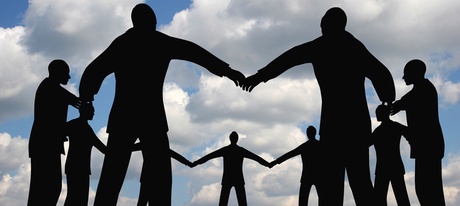
May 18, 2018
Yesterday the American Embassy opened in Jerusalem. It is only Wednesday, and according to the media approximately 60 unarmed Palestinians have been killed, and almost 2,400 have been injured in protests along the Gaza border this week.
I have spent most of the night awake, praying, studying the power point I have prepared, and considering what to say today when Ghassan and I go to Spring Hill prison to present the Abrahamic Reunion program there. Spring Hill is an open prison that prepares long-term prisoners for release.
When we arrive we meet Ali, a prisoner who participated in our Abrahamic Reunion program at Grendon Prison last year. (Names have been changed to protect their identities)
Ali has stayed in touch with us since we met, and hopes when he is finally released he will be able to work with us.
In January, Ali was transferred from Grendon Prison to Spring Hill so he could begin preparing for the time when he will be released, which will be in about two and half years.
In the meantime he has promoted our Abrahamic Reunion program among the inmates at Spring Hill.
In some ways Ali’s story is typical of stories we will hear from other prisoners we will meet here at Spring Hill. Ali is in his late thirties. He has been in prison since 2001, when at age 18 he committed a murder related to events that unfolded in his Muslim neighborhood after 9/11. He has been in prison since then.
He describes how in a few months he will be allowed off of the prison grounds with an escort for the first time, and how for a few hours he will be able to experience seeing stores and neighborhoods. Eventually he will be taken shopping, and he describes what he thinks it will be like to handle money, and pick out clothing for the first time in almost 17 years.
Ali will eventually graduate to going out with an escort twice a week, and at some point he will be able to spend a few hours at a time alone in the outside world.
He describes how Spring Hill will prepare him to visit his family and eventually how to sleep over night at his family’s home.
My head reeled when I tried to imagine it all.
It is time for our program to begin and other inmates start to arrive. Many people greet us, and are so happy when we recognize them from our previous visit.
The room fills to capacity with about 50 people. Most of the people in the audience are Muslims, but there are few who appear to be Christians, and there is one Jewish man who introduces himself.
 After my presentation, Ghassan speaks for a while then he has every one stand up to form 2 circles. There is an outer circle and inner circle. We face one another as partners. I am in the inner circle. Ghassan asks us a question: “What brings you here?”
After my presentation, Ghassan speaks for a while then he has every one stand up to form 2 circles. There is an outer circle and inner circle. We face one another as partners. I am in the inner circle. Ghassan asks us a question: “What brings you here?”
My partner and I talk heart to heart about the journey we have each been on that has led us to be in this room together. He describes emigrating from Pakistan to England as a child and eventually being caught trying to sell over a ton of cannabis. As I try to imagine what a ton of cannabis looks like. He asks me if I know any one who has tried it and if it is legal in Florida. He tells me about his relatives who live in New Jersey and how many years it has been since he has seen them.
As I still try to imagine ton of cannabis. Ghassan tells us to rotate so we will each face a new partner. Then he asks, “What do you miss?” My new partner and I describe our mothers, our spouses, and our children to one another. He asks me about my grand children and sympathizes when I tear up because I miss them so much. He says his relatives live far away and he has rarely seen them since he has been in jail. He shares that he has come because he wants to learn how to do something good in the world when he finally gets out of prison.
 Ghassan has us move again and asks us, “What are your dreams?” I expect the new man opposite me to say something about being able to see his family, or eat in a restaurant, or drive a car. I feel completely amazed when he says “I want to do something good for other people. He explains, “Everyday I try to imagine what I can do to help others when I get out.”
Ghassan has us move again and asks us, “What are your dreams?” I expect the new man opposite me to say something about being able to see his family, or eat in a restaurant, or drive a car. I feel completely amazed when he says “I want to do something good for other people. He explains, “Everyday I try to imagine what I can do to help others when I get out.”
Our program is over but Ghassan has a hard time getting people to stop talking. The room is filled with partners talking, listing, and hugging one another.
We assure them that we will be back next week to do a workshop, and they assure us that they will definitely return.
We are so grateful to Brenda Davies and Yvonne Dixon who both work at Spring Hill Prison and who have arranged for our program here.
Studying Texts with Rabbi Wittenberg and His Students
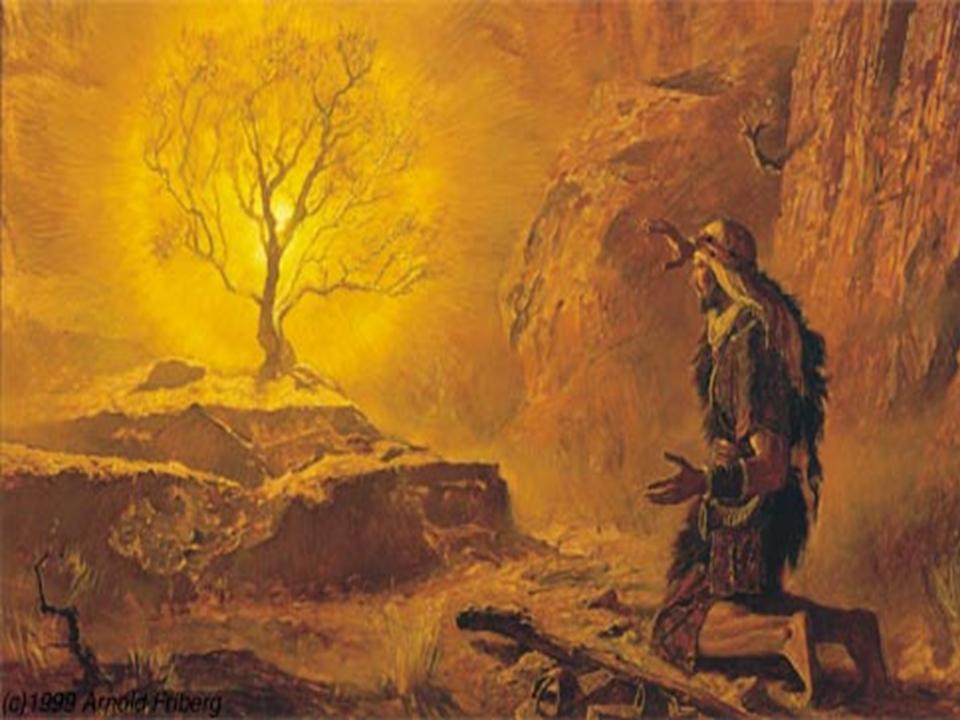 May 15, 2018
May 15, 2018
Each time we come to London we visit our dear friend and colleague, Rabbi Jonathon Wittenberg.
Rabbi Wittenberg is Masorti Judaism’s senior rabbi in the UK. He is also the Rabbi of the New North London Synagogue, which has approximately 2400 members.
In addition Rabbi Wittenberg is deeply committed to interfaith work and working with refugees.
 This year Rabbi Wittenberg has graciously invited us to join him and his students for a text study group that has met once a month, in the same coffee shop, for over 10 years, to study and discuss mystical rabbinical texts together.
This year Rabbi Wittenberg has graciously invited us to join him and his students for a text study group that has met once a month, in the same coffee shop, for over 10 years, to study and discuss mystical rabbinical texts together.
As we sit down Rabbi Wittenberg passes out copies of the text, and we begin to study.
The teaching describes the event when Moses encounters the burning bush, and is commanded to remove his shoes.
Moses hides his face, and when Moses hides his face, God reveals himself to Moses and tells him to lead his people out of Egypt.
Moses objects and God reiterates his command, until Moses surrenders.
The text analyzes the stages that enable Moses to have this divine encounter, and describes Moses hiding his face, as a metaphor for minimizing the ego so that Moses can experience the “Face of God”.
Rabbi Wittenberg asks the group if they have any comments or questions.
The young father next to me expresses some doubt about the text’s advice to minimize the ego in order to experience God. He wonders why, since the ego itself is a creation of God, it is necessary to minimize it.
Ghassan begins speaking in Hebrew and translating himself into English for those who do not understand.
 He compares Moses’s experience with the burning bush to Mohammed’s experience on Lailat al Qadr (the Night of Power), when Mohammed hides himself in a cave to escape the heat and bustle of the city.
He compares Moses’s experience with the burning bush to Mohammed’s experience on Lailat al Qadr (the Night of Power), when Mohammed hides himself in a cave to escape the heat and bustle of the city.
While Mohammed is hidden in that cave, a light reveals itself to him. And that light begins speaking to him, and becomes the angel Jibril (Gabriel), who hands Mohammed a scroll and commands him to read.
Mohammed objects, saying he can not read, and Jibril overrides Mohammed’s resistance and commands him again to read, and this was how the Quran, was first revealed to Mohammed.
Ghassan goes on to analyze and compare the stages that Moses and Mohammed each go through during their divine experiences.
 Jaws drop, and eyes widen as Ghassan continues to compare the teachings. Rabbi Wittenberg becomes animated and takes over translating. Light appears on everyone’s faces.
Jaws drop, and eyes widen as Ghassan continues to compare the teachings. Rabbi Wittenberg becomes animated and takes over translating. Light appears on everyone’s faces.
Perhaps for the first time they are experiencing the connection between the symbolical teachings in Islam and Judaism.
Questions and comparison’s about esoteric symbology, history, rabbinical texts and Sufi teachings begin pouring out as more and more realizations take place within our group.
Rabbi Wittenberg explains to everyone how Ramadan, the Muslim month of fasting, which is about to begin in a few days, commemorates the events Ghassan has been describing.
As the study session ends Rabbi Wittenberg turns to us and tells us how much he has enjoyed this experience, and he invites us to celebrate Shavuot with him and his congregation at his synagogue, and in his home on Saturday night.
Shavuot is the Jewish festival that commemorates when the Torah was revealed to Moses on Mount Sinai.
During the festival Jewish people stay up all night studying and discussing sacred texts together, just as Muslims will stay up all night reading the Quran to celebrate Lailat al Qadr (The Night of Power) on June 10.
We eagerly accept, and realize we are about to spend the weekend celebrating both Shavuot and Ramadan.
You can find another blog about the Abrahamic Reunion and Rabbi Jonathon Wittenberg here.
Listen to the Whispers of Your Soul Concert
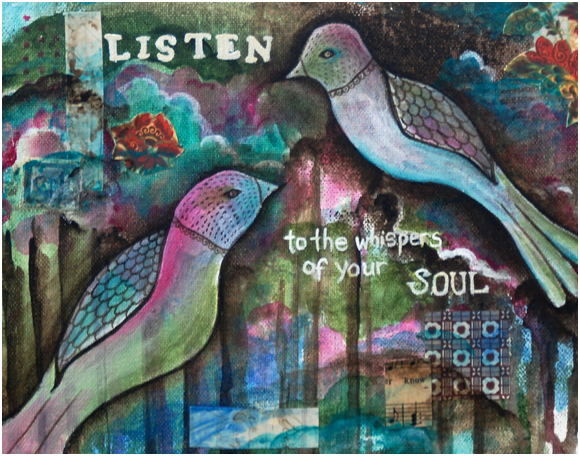 May 14, 2018
May 14, 2018
Last night the quartet The Garden of the Spirit performed an exquisite concert and offered a poetry-reading event called Listen to the Whispers of Your Soul as a fund-raiser for the Abrahamic Reunion.
Together pianist Azima Melita Kolin and her nephew cellist Sebastian Kolin performed duets by Bach, Schubert, Schuman, and Beethoven.
Between each musical interlude Ann Marie Terry, Anne Louise Wirgman, and Azima read poetry by Rumi, Hafiz, Rilke, and Machado.
The effect was absolutely mesmerizing and transportive.
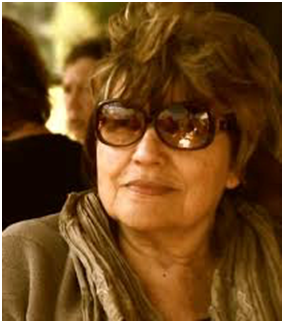 After the concert we held a meet and greet so people could learn more about the Abrahamic Reunion and our activities in England, and in the Holy Land.
After the concert we held a meet and greet so people could learn more about the Abrahamic Reunion and our activities in England, and in the Holy Land.
The Centre for Counseling and Psychotherapy Education provided the venue for the event.
We are so grateful to The Garden of the Spirit, and the CCPE, and the event organizers, Vakil and Amanda Kenton, the directors of the Abrahamic Reunion in England for their support.
Personal Transformation Seminar
Beloved Friends,
Today the Abrahamic Reunion spent an amazing time at the Centre for Counseling and Psychotherapy Education: a large charitable organization where over 100 counselors and psychotherapists provide counseling and psychotherapy here in London. The CCPE also serves as the home for the London Sufi Center.
During the day, Abrahamic Reunion International Director, Ghassan Manasra presented a seminar with Nigel Hamilton*, and Rabbi Danny Newman**.
The topic of the seminar was “Personal Transformation from a Muslim and a Jewish Perspective.”
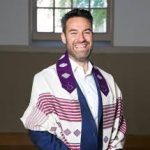
Rabbi Danny Newman
In the seminar Rabbi Danny Newman, who is a Rabbi at the Finchley Reform Synagogue, which has over 2,000 members, led our group in a Jewish Mindfulness Meditation practice taught by Rabbi Kalonymus Kalmish Shapira (1189 – 1943).
Every person in the room succeeded in following the simple three-step process of quieting the mind, concentrating on a sacred phrase, and then using personal prayer to enter a deeply meditative state. All of us who thought these techniques were unique to Buddhist meditative practice were astonished to realize that Eastern European Jewish mystics were doing these practices in the early part of the 20th century. It was a real home-coming experience for everyone in the room.
Sheikh Ghassan Manasra, who besides being the International Director of the Abrahamic Reunion, is also the lineage holder of the Qadiri Sufi Order in the Holy Land, spoke about the effect of color on the body, mind, and spirit, the symbology of color, and the role color can play in restoring harmony and well being.
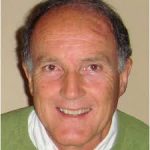
Nigel Hamilton
Nigel, who is the founder of CCPE and the London Sufi Centre expanded on these teachings to demonstrated how dream analysis and the role of color in dreams can be used for conflict resolution.
The seminar’s participants came from all over the world, but were primarily from Muslim, Jewish, and Christian backgrounds. Each one brought an open mind and a willingness to experience the esoteric teachings offered by these three wonderful teachers.
When the seminar was over, many participants, who earlier in the day had shared that they had experienced disillusionment and disappointment because their childhood religions had imposed on them a sense of exclusivity, or superiority, eagerly sought out the teachers, who had openly demonstrated a willingness to be open to the other.
The seminar was a real demonstration of how the Abrahamic Reunion could bring together teachers from different traditions to share and experience one another’s sacred and esoteric teachings, and how that experience can generate trust, love, joy and healing among the participants.
As Rabbi Danny and I said good-bye he said to me, “I don’t know how you came up with the concept of doing this, but it is so important, and so needed in the world.”
Anna Less
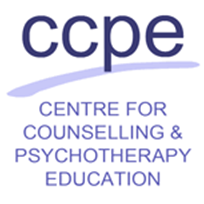 *To read more about CCPE, Nigel Hamilton and the London Sufi Centre see these links below
*To read more about CCPE, Nigel Hamilton and the London Sufi Centre see these links below
**To read more about Rabbi Danny and the Finchley Reform Synagogue see these links below
- https://www.reformjudaism.org.uk/finchley-reform-synagogue-appoints-new-rabbi/
- https://frsonline.org/community/
To read more about the Abrahamic Reunion see these links below
- https://www.abrahamicreunion.org/
- New! https://abrahamicreunionengland.org/
- https://abrahamicreunionengland.org/sponsors

